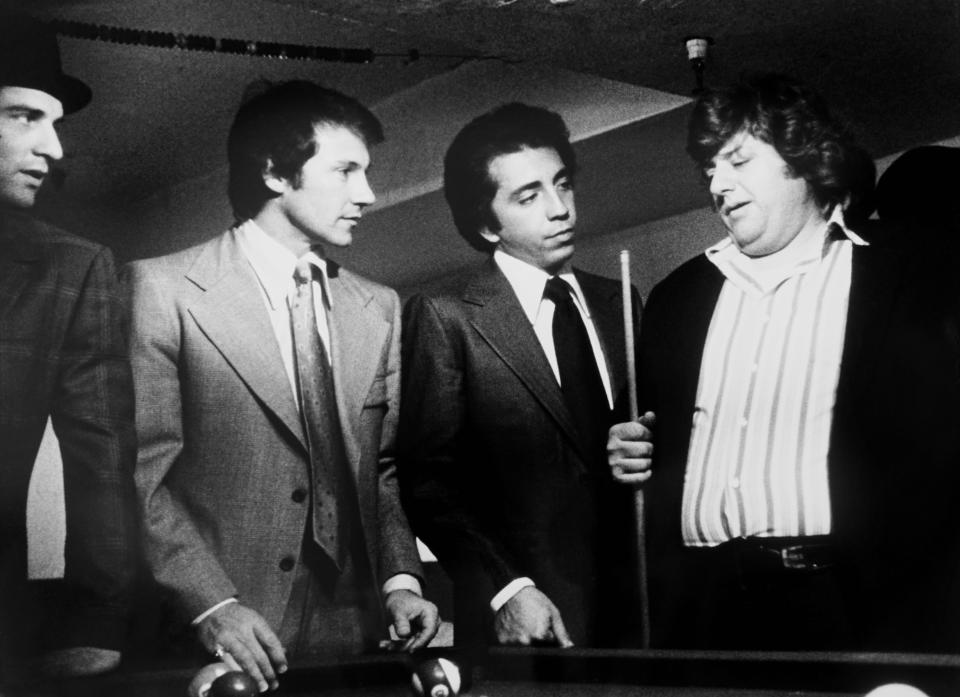Westerns Have Always Been an Integral Influence on Scorsese’s Movies — Even ‘Goodfellas’
- Oops!Something went wrong.Please try again later.
- Oops!Something went wrong.Please try again later.
- Oops!Something went wrong.Please try again later.
- Oops!Something went wrong.Please try again later.
Ever since Martin Scorsese‘s “Killers of the Flower Moon” premiered at Cannes, critics have celebrated it as Scorsese’s first real Western after decades in which the genre’s influence could be felt at the edges of movies like “Casino” and “Gangs of New York.” The director himself sees it a little differently. As the guest on IndieWire’s Filmmaker Toolkit podcast’s 250th episode, he said, “How can I make a Western? I come from the Lower East Side. The guys who made Westerns, when they came out [to Los Angeles], they were riding horses. The old cliché of the director wearing jodhpurs? Well, that’s what they did — you got around on a horse, you had to wear boots, you had to have a riding crop.”
Scorsese feels that the Western as he knew it in childhood ended with Sam Peckinpah’s “The Wild Bunch” in 1969, and that it’s impossible to go back to the genre as it existed before Peckinpah shattered its myths with his confrontational masterpiece. “You can’t make a Western after those guys made those films,” he said. “You can’t go near John Ford or Howard Hawks or Budd Boetticher or Andre de Toth or Delmer Daves.” Scorsese credits Daves, in particular, as a groundbreaker when it comes to sympathetic portraits of indigenous characters in Westerns. “His Westerns are amazing. He was one of the first to do movies that were pro-Native: ‘Broken Arrow,’ ‘Drum Beat,’ ‘The Last Wagon.'”
More from IndieWire
While Scorsese feels that he can’t compete with the Westerns of Hollywood’s classical period, he acknowledges that the influence of those films has found its way into many of his non-Westerns — and that one can draw a direct line from the low-level hoods hanging out in the pool rooms in “Mean Streets” to the layabouts in “Killers of the Flower Moon.” “Oh yeah, it’s the same thing,” he said, noting that one of the key things he took from Howard Hawks and John Ford’s films was the idea of a stock company of actors. “All these minor characters are played by the same actors all the time in all these films. It became like a family, and I could say, well, if I get people who when they’re standing together, look like they belong in the same world, that’s what we’re going to go for. They happen to be in a pool room? OK. I know what happens in a pool room.”
The influence of Ford’s “The Searchers” on Scorsese’s “Taxi Driver” has been well documented, particularly by screenwriter Paul Schrader who acknowledges it as a conscious influence, but “The Searchers” was a key reference for another famous Scorsese picture too. “You know the scene in ‘The Searchers’ where Ward Bond arrives at the house and says, ‘Let’s get some of that coffee?’ That became the scene with my mother in ‘Goodfellas,'” Scorsese said, explaining that he was trying to achieve the same kind of casual familiarity Ford established between Bond and the Edwards clan when he cast his mom Catherine opposite Ray Liotta, Robert DeNiro, and Joe Pesci for the classic scene where Pesci’s mom makes dinner while the gangsters’ latest victim kicks around in a car trunk outside.

“The sense of family, the sense of the camaraderie, the sense of the overlapping dialogue, of all that wonderful action going on in the house at that time, cooking the breakfast, the kids getting up and everybody teasing each other,” Scorsese said, “all of that was so warm and so beautiful. And so I said, well, it just is natural for us to do the same.” That camaraderie is, to some extent, a reflection of Scorsese’s working methods, in which he relies on a group of trusted longtime collaborators to stay excited about making films. “You need good collaborators, you really do. I’m 81, so I don’t want to go to work. Meaning do something for somebody else. It’s got to be fresh every time, and scary. What can I find that makes me interested every day to go there? That’s a blessing if it can happen.”
Best of IndieWire
Where to Watch This Week's New Movies, Including 'The Iron Claw' and 'All of Us Strangers'
2023 Movies Shot on Film: From 'Oppenheimer' to 'Killers of the Flower Moon' and 'Maestro'
Quentin Tarantino's Favorite Movies: 59 Films the Director Wants You to See
Sign up for Indiewire's Newsletter. For the latest news, follow us on Facebook, Twitter, and Instagram.

